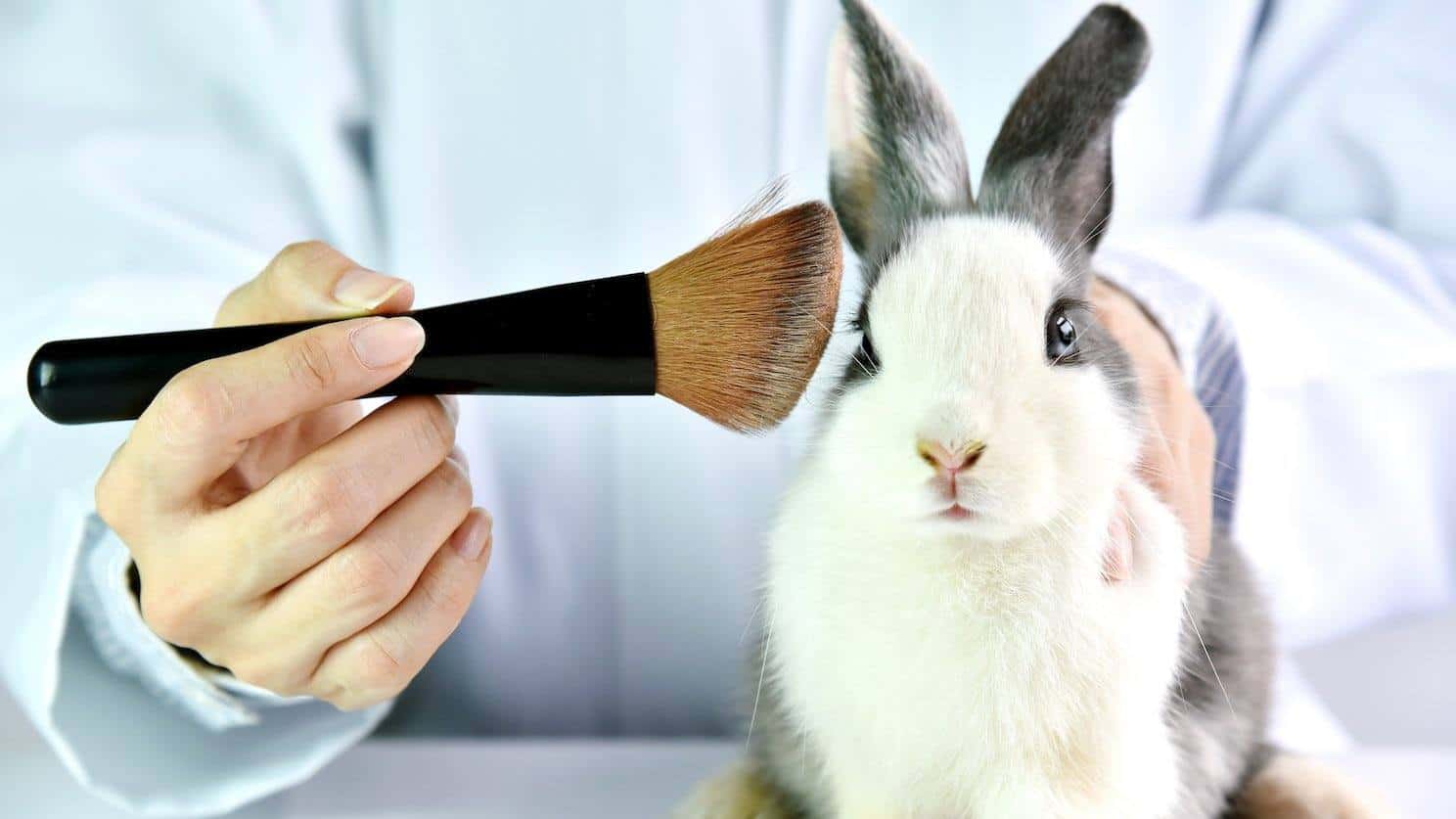Do you love looking beautiful, but not at the expense of an animal’s health and well-being? If so, you’re not alone. The European Union issued a ban on the sale of new cosmetics that are tested on animals.In the U.S., the Humane Cosmetics Act would ban animal testing for cosmetics and ban the sale of animal-tested cosmetics.
While cosmetic companies don’t test their products on animals here in Australia, many well-known brands sold here in Oz do test their products or ingredients on animals elsewhere in the world.Here in Australia, the results of the Australian Labour Party’s cosmetic testing consultation are in, and the message it sends is unmistakable:
92% of Australians will support a ban on the import of cosmetics developed using cruel animal tests.
Does This Mean Cosmetic Testing on People?
Understandably, many consumers wonder about the safety of cosmetics that have not be pre-tested on animals. The truth however, is that
92% of experimental drugs that are safe and effective in animals fail in human clinical trials because they are too dangerous or don’t work.
Furthermore, in the 21st Century, we have wonderful options for the most commonly required safety tests for cosmetics that do not require that animals be subjected to torture. These animal-friendly alternatives achieve one or more of the 3 R’s of cruelty-free testing:
- REPLACE a procedure that uses animals with a procedure that doesn’t.
- REDUCE the number of animals used in a testing procedure.
- REFINE a procedure to alleviate or minimise potential animal pain.
There are thousands of established ingredients that are “Generally Recognised as Safe” (GRAS), and therefore do not require further testing. There are, for example, almost 20,000 ingredients in the European Union’s database alone for which safety data is already available.
Turning Bunnies Into Guinea Pigs
There has been a global movement in support of cruelty-free products. Yet cosmetics companies continue to be involved in animal testing for two key reasons:
- They wilfully develop new ingredients for use in their products, despite the knowledge that what they will need to perform required safety tests with animal “guinea pigs.”
- They sell their products in countries like China where animal testingof imported products is required by law.
In these ways profits, not compassion, drive the industry.
What Does Animal Testing Involve?
When used in cosmetic tests, mice, rats, rabbits, and guinea pigs are often subjected to skin and eye irritation tests where chemicals are rubbed on shaved skin or dripped into the eyes without any pain relief. Others tests involve killing pregnant animals and testing their foetuses.
For these reasons and more, RSPCA Australia and RSPCA UK have joined forces in a new campaign entitled Makeover the World. Makeover the World urges consumers to take a stand and lobby international manufacturersdirectly, as well as to boycott products or ingredients tested on animals.
The mission of the campaign is to end animal testing forever at the world’s cosmetic manufacturing companies.
To learn more about this issue and the Makeover the World campaign, visit the RSPCA website.

My only comment is I totally loathe anything and anyone who needs to use and abuse animals for FOOD, CLOTHES and BEAUTY PRODUCTS etc…. and whatever else they use these poor helpless and voiceless animals for…..unfortunately people put profits before animals and even before people in poor countries all total unnecessary. It’s an overload of goods and supplies our consumer society have become too greedy and we don’t need all this extra stuff that just clutters up our lives and our heads, telling us we ‘NEED THIS!!! I’m sure we can come up with ingredients that don’t need to rely on animals, we have herbs, spices and plants to do this and why can’t it be tested on humans if we are the ones using it? If it’s natural then it can’t harm you, I can’t see where the problem lies.
ANIMAL LOVER OF ALL KINDS